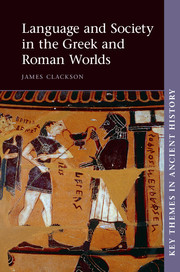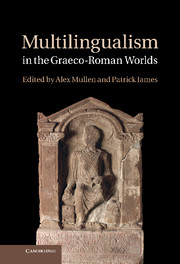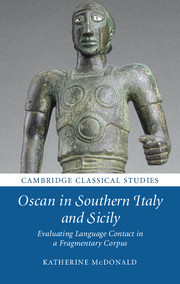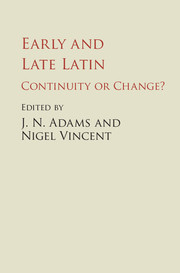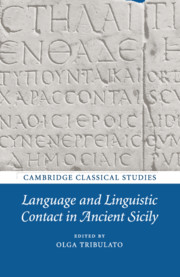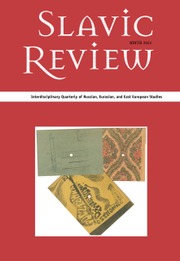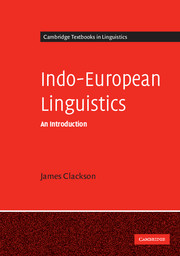Language and Society in the Greek and Roman Worlds
$29.99 ( ) USD
Part of Key Themes in Ancient History
- Author: James Clackson, University of Cambridge
- Date Published: April 2015
- availability: This ISBN is for an eBook version which is distributed on our behalf by a third party.
- format: Adobe eBook Reader
- isbn: 9781316307984
Find out more about Cambridge eBooks
$
29.99 USD
( )
Adobe eBook Reader
Other available formats:
Hardback, Paperback
Looking for an examination copy?
This title is not currently available for examination. However, if you are interested in the title for your course we can consider offering an examination copy. To register your interest please contact [email protected] providing details of the course you are teaching.
-
Texts written in Latin, Greek and other languages provide ancient historians with their primary evidence, but the role of language as a source for understanding the ancient world is often overlooked. Language played a key role in state-formation and the spread of Christianity, the construction of ethnicity, and negotiating positions of social status and group membership. Language could reinforce social norms and shed light on taboos. This book presents an accessible account of ways in which linguistic evidence can illuminate topics such as imperialism, ethnicity, social mobility, religion, gender and sexuality in the ancient world, without assuming the reader has any knowledge of Greek or Latin, or of linguistic jargon. It describes the rise of Greek and Latin at the expense of other languages spoken around the Mediterranean and details the social meanings of different styles, and the attitudes of ancient speakers towards linguistic differences.
Read more- Presents ancient languages in the context of ancient history, making linguistic discoveries and insights available to ancient historians
- Linguistic jargon is avoided: readers can understand the material without having a previous understanding of linguistics
- Accessible to readers from many disciplines such as classics, theology, medieval history and Near Eastern studies
Reviews & endorsements
"… this is a work with a clear aim and a lot of coherence; it will serve its purpose as an excellent introduction to a vast subject."
Staffan Wahlgren, Bryn Mawr Classical ReviewCustomer reviews
Not yet reviewed
Be the first to review
Review was not posted due to profanity
×Product details
- Date Published: April 2015
- format: Adobe eBook Reader
- isbn: 9781316307984
- contains: 9 b/w illus. 3 tables
- availability: This ISBN is for an eBook version which is distributed on our behalf by a third party.
Table of Contents
1. The linguistic ecology of the Mediterranean
2. States of languages / languages of states
3. Language and identity
4. Language variation
5. Language, gender, sexuality
6. The languages of Christianity
Conclusion: dead languages?
Bibliographic essay.
Sorry, this resource is locked
Please register or sign in to request access. If you are having problems accessing these resources please email [email protected]
Register Sign in» Proceed
You are now leaving the Cambridge University Press website. Your eBook purchase and download will be completed by our partner www.ebooks.com. Please see the permission section of the www.ebooks.com catalogue page for details of the print & copy limits on our eBooks.
Continue ×Are you sure you want to delete your account?
This cannot be undone.
Thank you for your feedback which will help us improve our service.
If you requested a response, we will make sure to get back to you shortly.
×
